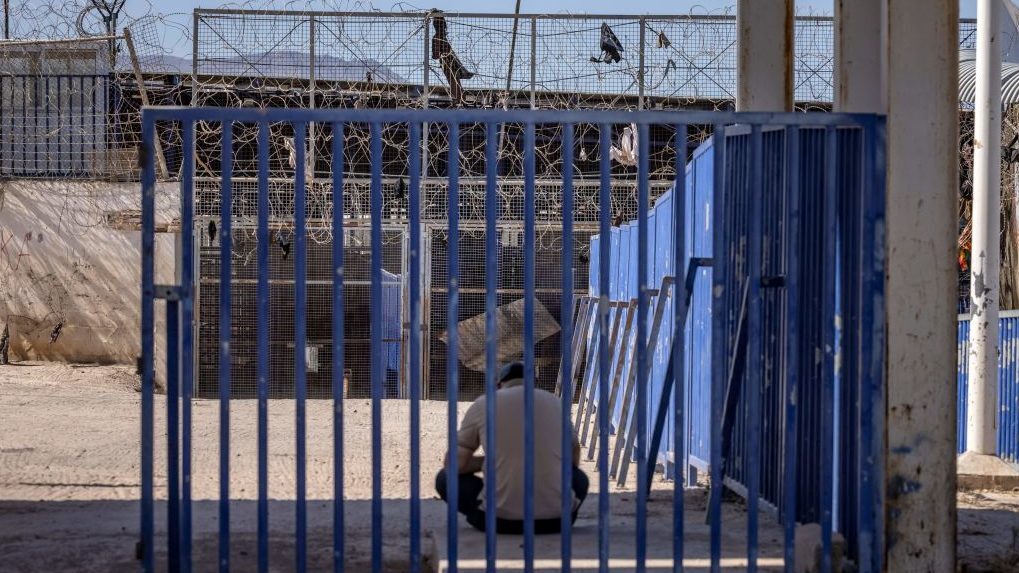African Asylum Seekers Attempting To Cross to Melilla Clash With Spanish, Moroccan Forces
Death toll rises to at least 23, with hundreds left injured in the incident on Morocco’s border with the Spanish enclave
At least 23 African refugees seeking asylum died during a mass attempt to cross from Morocco into the Spanish protectorate Melilla on Friday. The incident marks the first extensive border-crossing effort since Spain and Morocco patched up their diplomatic ties in March.
The relationship between the two countries broke down in April 2021 when the leader of the Polisario Front, Brahim Ghali, was treated at a hospital in Madrid after he contracted COVID-19 and suffered complications. The Polisaro Front is a rebel movement that opposes Moroccan control of the Western Sahara, home to the indigenous Saharawi people, annexed by Morocco in 1976.
Melilla and Ceuta are two Spanish enclaves in Morocco, and they constitute the only land border between Africa and Europe. Therefore, African refugees from all over the continent, and especially from the sub-Saharan region, constantly attempt to cross these borders to seek asylum in the European Union.
On Friday, about 2,000 people approached the fence separating Melilla and Morocco in an attempt to forcefully cross the border by cutting the fence using shears. The event led to violence that left hundreds injured, including at least 76 migrants, and nearly 200 border security personnel, including both Spanish and Moroccan officers.
According to Moroccan media, the death toll rose on Saturday night to 23 people, all African asylum seekers. A Moroccan officer claimed that some of the dead fell from the top of the iron border fence while trying to climb over it. About 130 of the migrants successfully crossed into Spanish territory, according to reports.
Spanish Prime Minister Pedro Sanchez in a statement condemned the “violent assault” and claimed it was organized by “Mafias that traffic in human beings,” and described it as “an attack on the integrity of a Spanish territory.”
Sanchez praised the Spanish security forces for protecting the country’s borders, and recognized the cooperation of the Moroccan forces in the same task.
Mohamed Amine Abidar, president of the Moroccan Association for Human Rights (AMDH) organization in Nador, a Moroccan city that has a border with Melilla, said that his organization doesn’t consider the Spanish steps legitimate, “as they don’t respect the international conventions on human rights and the rights of the migrants which allow requesting asylum,” he told The Media Line.
“We are sorry for what happened and stand in solidarity with the victims. We show also sympathy for the Moroccan police that were injured during the event,” he told The Media Line.
Later, he described the policies of Spain and the EU regarding migration as “hostile policies toward human rights and the rights of those seeking asylum.”
However, Ecaterina Matoi, an intelligence and security analyst, told The Media Line that migration via the Mediterranean Sea has become an increasingly difficult problem for the European Union, and that Spain is one of the three main routes that African migrants use to get to Europe. The other two are through Turkey and Greece.
“Spain is one of the most popular first destinations for illegal migrants in Europe and it requires extensive support from the EU to tackle this issue. Spain has the 4th highest number of asylum applications among European countries,” she said.
Abidar says that considering these migrants illegal “is a violation of their rights and we don’t agree with it.”
Matoi explained that the status of immigrants is established upon arrival, by land, sea or air, irrespective of origins, be it South America or sub-Saharan Africa.
She added that Spain is facing pressure from multiple directions regarding this issue.
First, she says, Spain is the first destination for many migrants arriving in the EU, when compared to the numbers that arrive in countries from Central Europe or Scandinavia.
Second, Matoi continued, “the US administration is pressuring Spain to accept more South American migrants in order to ease tensions at the US border.”
Finally, Spain is striving to accommodate Ukrainian refugees.
It is not obvious that the European Union is pressuring Spain, but it is important to say that Spain is in a difficult position, Matoi also said.
Abidar blames Friday’s events on all three: Spain, Morocco and the EU.
“The events that took place on Friday, are a result of these countries’ policies. Because violence breeds violence,” he said.
“The asylum seekers are living in inhuman conditions and they constantly suffer from arrests, authorities following them, violating their rights and depriving them of the basic rights that are given to them by international conventions for human rights,” Abidar added.
As neighboring countries, Spain and Morocco collaborate on multiple levels, such as tackling irregular migration and being anchored in a broader security cooperation agreement that also includes fighting organized crime, Matoi says.
She explains that the African migration is a complex issue for Europe.
“Historical, cultural and economic factors that encourage migration play an important role,” she said.
While some countries in Europe accept more migrants than others, determining what is the overall capacity of the Old Continent to absorb and integrate a large number of migrants might be a challenge, Matoi explains.
“Expectations from both sides might not match and integration might be difficult and lengthy,” she said.
For that reason, Matoi believes that following Friday’s events, Moroccan and Spanish authorities will in the short term strengthen security and surveillance at the border.
However, she added, “the policies and their evolution will impact long-term developments. The migration as a phenomenon will be impacted by macro-policy factors.”
The 30 asylum seekers that were arrested during their attempts to cross the border are being taken to court. Abidar said that his organization, together with other attorneys, are representing them all.
“The attorneys of the association are representing those migrants as it is their right to have legal representation,” he added.


